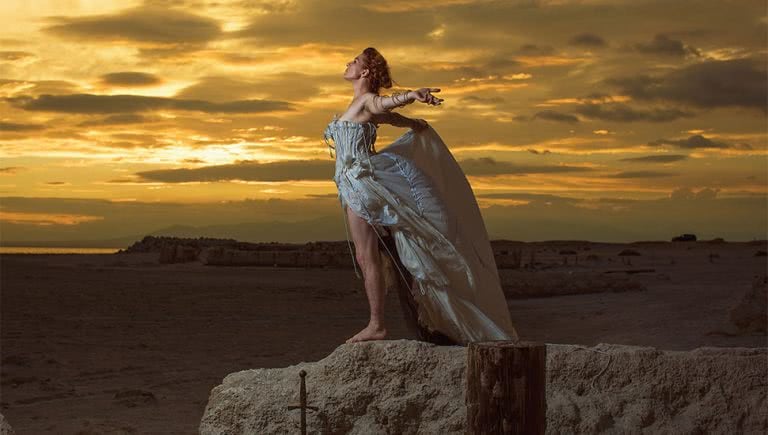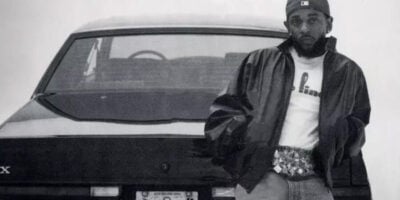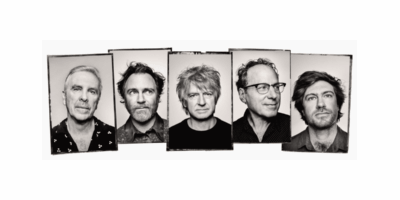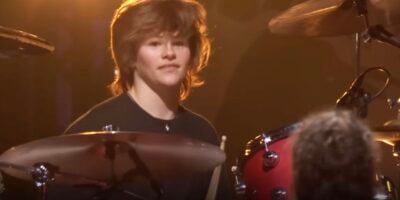When it comes to both music and the live scene in Australia, Amanda Palmer has been something of a constant presence for close to two decades now.
Having first risen to fame with The Dresden Dolls back in the early ’00s, Palmer’s genre-defying mixture of music was quickly eaten up by fans far and wide. While singles like ‘Coin-Operated Boy’ and ‘Girl Anachronism’ helped to put the band and its piano-playing vocalist on the map, it was the debut of a solo career that helped make her a household name.
Releasing the exceptional Who Killed Amanda Palmer in 2008, Palmer continued her trend of visiting Australia, eventually sharing a record consisting of live performances, cover versions, and songs inspired by her time in the country as part of Amanda Palmer Goes Down Under.
While another solo album followed in 2012, the last few years have seen Palmer working on a number of other projects, including collaborative albums with her father Jack Palmer and Edward Ka-Spel, live records, remix albums, an EP, and numerous singles.
In 2019 though, Palmer shared There Will Be No Intermission, her first solo studio album in seven years. Receiving widespread critical acclaim across the board (and even generating a bit of controversy along the way), the musician often known as Amanda Fucking Palmer announced her return to Australia last year, with an extensive tour that is currently underway.
To celebrate this tour (which includes appearances at Tasmania’s MOMA FOMA, the Woodford Folk Festival, and sees Palmer serving as an ambassador for the Adelaide Fringe), we had a chat with Amanda about the new record, her love of Australia, and what projects she has on the cards for the future.
Check out Amanda Palmer’s ‘Drowning In The Sound’:

Love Music?
Get your daily dose of metal, rock, indie, pop, and everything else in between.
Tone Deaf: How’s it been being back in Australia?
Amanda Palmer: It’s been a really heavy week. Sorry about your country. Sorry about your government. Sorry about everything.
Tone Deaf: You’ve been pretty vocal about the current situation of Australia on social media lately. It must be pretty depressing to see Australia following the lead of America now in terms of apathy.
AP: It’s all feeling very same-same. I was just in the UK for four months, and it was the same pain. I feel deeply connected to this country, having spent so much time in it. Neil and I both have five-year visas for Australia and New Zealand, and I just don’t think you can seperate the issues.
It’s sad, but it’s got to be other things, or we’re doomed. It’s got to be sobering, and inspiring in order for us to get up in the morning and still think there’s a reason to create, and tour, and work, and not just throw ourselves off a bridge.
Tone Deaf: You had your new album come out last year — how has the response been since it’s came out? You also had 15,000 supporters for it. It must have been amazing to have so many people put their faith, their money, and their trust in you for a record.
AP: It’s been amazing. It’s actually less hectic than having major label. You know, with your creativity and your soul and time and own vice-grip, I think it’s a lot easier, but then again I’ve played on both sides of that field and it’s a cost benefit in both departments.
Being crowd funded by 15,000 people has its own set of tasks, responsibilities, drawbacks, but I would choose every single one of them one hundred times over the drawbacks of being at the mercy of profit driven major labels.
Check out Amanda Palmer’s ‘Do It With A Rockstar’:

Tone Deaf: When you do release an album in that sense, is it hard to gauge how successful it’s been?
AP: That’s a really good and complicated question. What I have found is that it’s hard to gauge success, period. Even in the heyday of the Dresden Dolls, success was so slippery and impossible to define. The label defined it one way, we defined it a completely different way.
If 20 years of releasing music and touring has taught me anything, it’s that I have to creatively manufacture my own definition of success.
It’s definitely not streaming number. It’s definitely not money. It definitely isn’t whether or not magazine X gave me a five-star review, because all of those things have and haven’t been true in certain parts of my career, and have actually no bearing on whether or not a project was successful.
I have to say that my ultimate definition of success has a lot more to do with the concrete emotional impact I can see the work having on people when I tour it and when I put it out than it does with whether or not the media weighs in or whether or not something is in the charts.
Tone Deaf: If you look at chart positions, there’s so many variations between so many artists. But then when you see you play live, your fans are so dedicated, and clearly that’s a good gauge of success if it resonates with the people, and you see that they’re enjoying it.
AP: Well that in itself is a slippery slope, because how many people need to be in that room for you to be able to call it successful?
I mean, I have gotten to the point as an artist where I think I’ve fine-tuned my ability to the point to where I could bust out that ukulele, and I could play a song for you that would move you, and that’s the only thing I did this year, and I could still call it a successful endeavour, because I connected with, and affected somebody.
I think we’ve just been fed the Kool-Aid for so long that scale is everything and blockbuster hits are everything, and success is upsized that we forget as artists that our role doesn’t have to do with size and scale. And we need to start flushing that Kool-Aid out of our system.
Check out Amanda Palmer’s ‘The Ride’:

Tone Deaf: With the new album, it comes seven years after your last solo record. In that time, you haven’t exactly been lazy, but what was it that made you decide to do another solo album instead of another collaborative album?
AP: Creating and touring solo gives me a high degree of autonomy and I think that especially since I’ve just had a kid, I just needed a fierce degree over my touring schedule, my release schedule, my day-to-day, mundane artistic existence.
Even then, I don’t function in a vacuum. I have a manager, I have agents, people who work in my office, I have publicists. There’s still a lot of collaboration, even though it’s me standing alone naked on a record cover. There’s still dozens of people propping up the backstage.
I also had a lot to say. I mean, my show’s four hours long. I have a lot to say right now about what has happened and what is happening on a micro and macro level. I didn’t want to bring anybody on tour who was going to have to sit there and listen. I mean, I already have to put my crew through a four hour show every night, [laughs].
But actually, one of the things that have been overlooked a little bit is how collaborative the record actually is. That record was actually really made by a band of people. There was four of us. There was me. There was John Congleton, who is a production genius.
He and I were kind of at the helm of the ship. Then, our two secret weapons were Jherek Bischoff, and Max Henry who absolutely lifted the production and the arrangement world of that record to a completely high level. Otherwise, this album would’ve just been piano and ukulele.
It would have been lovely, the songs would have been great, it still would have been really emotionally effecting, but both of those arrangers and John’s arrangements put all of the simplicity of the songs in turbo drive with such economical precision.
There’s nothing on that album that feels overdone or over-baked, but almost every song has production on it, but it doesn’t grab the spotlight, because everything is about the lyrics on that record. That took an incredible amount of deliberation. It wasn’t random.
John and I talked for ages on how to approach this record, how to record it, in what studio, with what conditions, and it was a real beautiful, deliberate, careful, emotional marathon making that record. John’s a genius, and my brother.
I could’ve worked with a gazillion engineers and producers to make this record, and it would’ve been good, but John has a special sauce, and he and I sat in that studio where there were a lot of long hours, and a lot of tears, and a lot of beautiful moments that wouldn’t have happened if I’d been with random persons.
He has a really incredible touch when it comes to creating conditions. This is why he’s a producer, not just an engineer. An engineer could just be like, “these mics, these sounds, this treble, this bass”, and that’s great.
That’s really important — more important than most people realise. But, creating the conditions in which a songwriter and a performer can walk into a space and totally blossom in the height of their authenticity in that certain moment that has to be captured on tape is a hard job.
I’ve worked with a lot of producers, and it is a hard job. It is an infinite number of dials and conditions to make an artist feel safe enough to explode onto the canvas in the right way in the right time, and John’s really fucking good at it.
Check out Amanda Palmer’s ‘Voicemail For Jill’:

Tone Deaf: There’s obviously some really heavy themes on the new record. Were all the songs written in a reactionary manner, or were any written ahead of time?
AP: Every songs has a different answer. ‘Voicemail For Jill’ is a really good example. That song is about abortion, and I’ve written hundreds of songs in my career, it’s very rare for me to sit down, roll up my sleeves, and say, “I’m going to write a song about topic x“, but that was one of those moments.
I had a list of things to do, and on my list along with “pick up broccoli for dinner” and “make sure to pick up tampons” or whatever, on my mundane list of things to do that week was to write a song about abortion.
Having given everything I’ve been through, and having just returned from Dublin, and having experienced the referendum vote, and coming back to the conditions in America which were beyond terrifying, I thought, “I have a record coming out”.
I don’t feel as a songwriter, even having written multiple songs about abortion, that I’ve done a real emotional justice. I had to write this song. I had to write something.
Most of the other songs on the album, all of them, really – besides one of them being a cover, which really doesn’t count – just manifested. They swirled into existence and I caught bits and pieces and I assembled them into something that became a whole.
That’s usually the way I write. It usually starts with a lyric or melody, and then they attach to one another and then something comes out of that.
Check out Amanda Palmer covering Peter Jefferies’ ‘On An Unknown Beach’:

Tone Deaf: In 2016, there was an interview where you said that you could see Trump manage to “make punk rock great again”. That’s something that Australians seem to feel with our current political climate as well. Do you feel as though you’ve seen musicians rise to that task at all?
AP: Yeah, I think I have seen a lot of people rise to that task. The thing that I find ironic is that at the time when I made that statement, people thought I was bitter and cynical, and I actually felt inspired and hopeful because it’s not like Donald Trump came out of nowhere.
It’s not like everything was going great and all of a sudden this random, accidental boogey man came into our fantastic, perfect landscape.
Donald Trump, to me, is a pimple on the tip of the iceberg. I feel the same way. I think a lot of what you need to understand in that statement is what certain people mean by “punk”. I don’t mean Sex Pistols 1976, I mean a mindset that questions how the system works.
I think the artists, the activists, the writers, the community, and the musicians who have been ratcheting up the degree of honesty and forthrightness and authenticity in their work is a direct and necessary reaction to the level of insanity that Donald Trump is bringing to our lives.
There’s almost no other, aside from going directly into politics, which a lot people are doing, one of the strongest weapons we have in our arsenal is our the truth of our experiences. The unfuckwithable story of what’s happened or what’s happening. That’s happening. It’s certainly not happening peacefully, [laughs].
If I despair about anything nowadays, I reserve a lot of my concern and despair, not so much for Donald Trump about whom I can do practically nothing, but I’m very worried about the giant fractures I see within my own community. That keeps me up at night more. That actually worries me.
Check out Amanda Palmer’s ‘Leeds United’:

Tone Deaf: Looking at your career, you’ve also generated controversy from time to time. Did you ever find it hard to respond to any negativity that controversy brings, at all, or are you used to it?
AP: Both, yes. I didn’t get into songwriting and performing with the understanding that I’d also have to become a full-time criticism deflector. Yet, if you want to be an artist and you want to talk about real things, it’s just part of the job.
Learning how to do that part of the job has been taxing, but I also wouldn’t ever trade it. Every job has the shitty things you have to do, and that just feels like one of them, [laughs]. It just feels like one of the backroom jobs, like dealing with the dishes, or trash, or admin and all the facets of your job that aren’t the fun part.
This year in particular has provided me perspective on what criticism can become. I have been through plenty of episodes from the first time I wrote a song about abortion and feminists really didn’t like it, through Kickstarter, through tweets from the last week where people simply do not agree with me or like me.
I look at who I have become and what I am capable of doing, and I do not see them seperate. I just don’t think I’d have the fortitude I have as a songwriter had I not walked through all those fires and been forced to find myself and what I really believe in. I wouldn’t change anything. If I could wave a magic wand and erase all moments where I was considered controversial or provocative, or what have you, I wouldn’t. I would keep it all. Same with my personal life.
Dealing with all the stuff I write about in this album was not easy. Grief, death, abortion, cancer, pain — the things that are the pain of life that is inevitable dished out to you also makes you who you are. And that is that. I appreciate where it’s landed me. I don’t love that my friend is dead, but I appreciate where he dropped me off.
I think it’s also a side effect of having a Buddhist bend and a mindfulness practice for the past 30 years, but you just can’t look at any of this as unfair. It just is, and then you do something about it.
Tone Deaf: Looking at your Australian tour, one thing I thought that was quite interesting is that you’re serving as ambassador of the Adelaide Fringe. How did that come about?
AP: Adelaide is actually one of the first places I got to know as an artist in 2000. It was right when I had met Brian [Viglione] and started The Dresden Dolls, but we had barely played a gig. I came over to Adelaide as street performer, and really got my brain blown by a lot of the art I saw, and the people I met, so I had a history with that festival for almost 20 years.
It was really an honour to be invited to be an ambassador. I really have a deep belief in a certain kind of alchemy that festivals provide. There’s touring, and there’s gigging, and it’s really important, and it’s really good, but I have met some of my most inspiring mentors and important collaborators at Fringe Festivals, and stumbling into shows because I saw a friend ad a bar that was heading to something.
I think they’re so important. I think it’s so important to stick a bunch of artists into one place at the same time and let them infect each other, because we can all get very myopic in our own lanes, and if we’re not getting turned on to each other’s work, we can get too narrow. I think festivals are really important antidotes.
Check out The Dresden Dolls’ ‘Night Reconnaissance’:

Tone Deaf: This month is also the ninth anniversary of your Amanda Palmer Goes Down Under album — would you ever consider doing a sequel to that, at all?
AP: Oh, I have had an imaginary sequel to it since I made volume one, and I really want to do Amanda Palmer Goes Into The Bush, [laughs]. I mean, imagine the cover art. Although, that would take on a particularly significant meaning considering the bush is on fire right now.
There’s a lot of collaborations that I wanted to do for that record that just couldn’t happen fast enough. There’s also the “lost recording” that was supposed to go on that album.
Tone Deaf: What was that recording?
AP: It was a recording of me and Paul Kelly playing a song that he wrote called ‘Winter Coat’, and it was supposed to be on the album, and the hard drive crashed, so it didn’t make it on the record.
I had been hoping to do some kind of collaboration with whichever Australian icons I could collaborate with — from Midnight Oil to Nick Cave, and I just didn’t have time because I made the record really fast. But I’d love to do a volume two to that.
I can think of a handful of artists; I’d love to do a cover of Tim Minchin. Tim’s so singularly him that he’s hard to cover, but it makes it an interesting challenge. I can think of a dozen Nick Cave songs I’d love to do. There’s so many directions I could take an album like that.
I think another thing I’d like to do is get to know some new Australian artists, and not just rely on the mentors and icons of my past, and bring some up and coming artists to the studio with me to do some fun stuff.
Before that I have to make a Dresden Dolls so it’s going to be a while, [laughs]. That’s the next big project I have coming up. The Dresden Dolls haven’t had a record since 2006. That one is on the docket, and Brian is living in L.A. now, so we just have to create a strategy of how we’re going to work and record, but we’re really excited. It’s been a long time.
Check out Amanda Palmer and Paul Kelly performing ‘Winter Coat’:

Amanda Palmer ‘There Will Be No Intermission’ Australian Tour
Remaining Dates
Thursday, January 16th – Saturday, January 18th
Mona Foma Confessional, Launceston, TAS
Monday, January 20th
Princess Theatre, Mona Foma, Launceston, TAS
Wednesday, January 22nd
Hamer Hall, Melbourne, VIC
Tickets: Arts Centre Melbourne
Friday, January 31st
Powerhouse, Brisbane, QLD
Tickets: Ticketek
Saturday, February 1st
Powerhouse, Brisbane, QLD
Tickets: Ticketek
Friday, February 7th
Canberra Theatre, Canberra, ACT
Tickets: Canberra Theatre Centre
Saturday, February 8th
Blue Mountains Theatre, NSW
Tickets: Blue Mountains Theatre
Friday, February 14th – Saturday, February 15th
Bonython Hall, Adelaide Fringe, Adelaide, SA
Tickets: Adelaide Fringe
Thursday, February 20th
Enmore Theatre, Sydney, NSW
Tickets: Ticketek
Saturday, February 22nd
Perth Festival, Perth, WA
Saturday, February 29th
Darwin Entertainment Centre, Darwin, NT
Tickets: Darwin Entertainment Centre


































